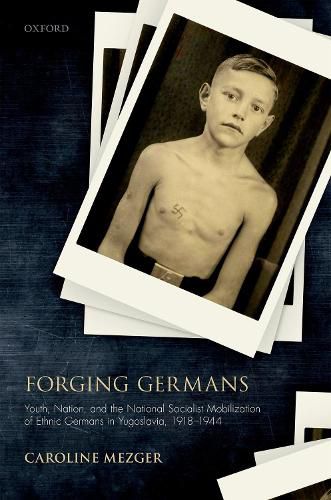Readings Newsletter
Become a Readings Member to make your shopping experience even easier.
Sign in or sign up for free!
You’re not far away from qualifying for FREE standard shipping within Australia
You’ve qualified for FREE standard shipping within Australia
The cart is loading…






Forging Germans explores the German nationalization and eventual National Socialist radicalization of ethnic Germans in the Batschka and the Western Banat, two multiethnic, post-Habsburg borderland territories currently in northern Serbia. Deploying a comparative approach, Caroline Mezger investigates the experiences of ethnic German children and youth in interwar Yugoslavia and under Hungarian and German occupation during World War II, as local and Third Reich cultural, religious, political, and military organizations wrestled over young people’s national (self-) identification and loyalty. Ethnic German children and youth targeted by these nationalization endeavors moved beyond being the objects of nationalist activism to become agents of nationalization themselves, as they actively negotiated, redefined, proselytized, lived, and died for the Germanness
ascribed to them.Interweaving original oral history interviews, untapped archival materials from Germany, Hungary, and Serbia, and diverse historical press sources, Forging Germans provides incisive insight into the experiences and memories of one of Europe’s most contested wartime demographics, probing the relationship between larger historical circumstances and individual agency and subjectivity.
$9.00 standard shipping within Australia
FREE standard shipping within Australia for orders over $100.00
Express & International shipping calculated at checkout
Forging Germans explores the German nationalization and eventual National Socialist radicalization of ethnic Germans in the Batschka and the Western Banat, two multiethnic, post-Habsburg borderland territories currently in northern Serbia. Deploying a comparative approach, Caroline Mezger investigates the experiences of ethnic German children and youth in interwar Yugoslavia and under Hungarian and German occupation during World War II, as local and Third Reich cultural, religious, political, and military organizations wrestled over young people’s national (self-) identification and loyalty. Ethnic German children and youth targeted by these nationalization endeavors moved beyond being the objects of nationalist activism to become agents of nationalization themselves, as they actively negotiated, redefined, proselytized, lived, and died for the Germanness
ascribed to them.Interweaving original oral history interviews, untapped archival materials from Germany, Hungary, and Serbia, and diverse historical press sources, Forging Germans provides incisive insight into the experiences and memories of one of Europe’s most contested wartime demographics, probing the relationship between larger historical circumstances and individual agency and subjectivity.